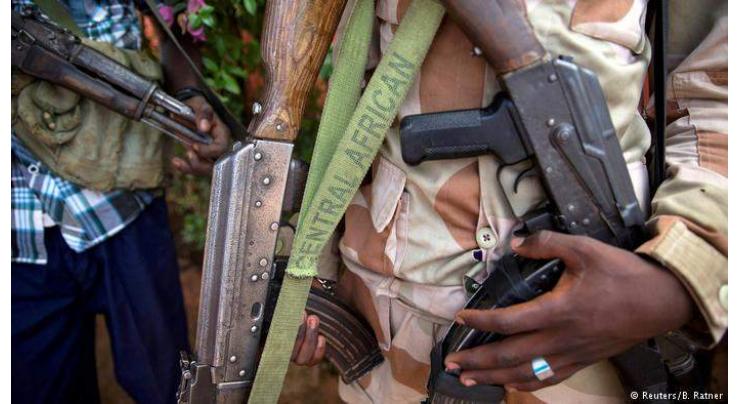
- Home
- World
- News
- UN Police Examining Evidence on Murder of 3 Russian Journalists in CAR - UN Chief's Aide
UN Police Examining Evidence On Murder Of 3 Russian Journalists In CAR - UN Chief's Aide
Sumaira FH Published October 01, 2018 | 12:51 PM

The UN police, working in the Central African Republic (CAR) as part of the peacekeeping mission, is examining the forensic evidence obtained from the site of the murder of three Russian journalists, UN Assistant Secretary-General for Rule of Law and Security Institutions in the Department of Peacekeeping Operations Alexander Zuev told Sputnik
UNITED NATIONS (UrduPoint News / Sputnik - 01st October, 2018) The UN police, working in the Central African Republic (CAR) as part of the peacekeeping mission, is examining the forensic evidence obtained from the site of the murder of three Russian journalists, UN Assistant Secretary-General for Rule of Law and Security Institutions in the Department of Peacekeeping Operations Alexander Zuev told Sputnik.
Russian nationals Kirill Radchenko, Alexander Rastorguev and Orkhan Dzhemal were found dead in the CAR on July 30. An investigative media of Russian opposition figure Mikhail Khodorkovsky confirmed that it had sent the three journalists to the CAR to work on a documentary about mercenary forces allegedly active in the country. According to the Russian Foreign Ministry, preliminary information showed robbery was the motivation behind the attack.
"The forensic tests continue now. The bodies of the journalists have been examined with the support of UN forensic experts.
Our ballistic experts and other [experts] are still working on the journalists' car," Zuev said.
The official noted that only CAR law enforcement can investigate the incident.
"We promise full support in this situation on the part of the UN police so that people who killed the Russian journalists were brought to justice as per law," the official said.
Zuev also recommended all journalists who were going to the regions where UN peacekeepers are deployed to get in touch with the missions and inquire about safety risks.
The CAR has been suffering from numerous internal conflicts. In 2012-2014, the country faced a civil war, involving the government, Seleka rebel groups' alliance, composed mostly of Muslims, and Christian militias. The violence did not stop even after Seleka was dissolved in 2013.
Related Topics
Recent Stories

HEC reviews curricula for environmental sciences degree programme

ICC Asia looking forward to an action-packed Asia Cricket Week

Yuvraj Singh named ICC Men’s T20 World Cup 2024 Ambassador

Greece hands Olympic flame to 2024 Paris Games hosts

Two Kyiv hospitals evacuating over feared Russian strikes

World must act on neurotech revolution, say experts

Charles & Catherine's cancer diagnoses

Champions Alcaraz and Sabalenka through in Madrid Open

King Charles to resume some public duties during cancer treatment: palace

US defense chief announces $6 bn in security aid for Ukraine

Heavy rains cause damage to Spezand-Taftan railway track

Woman stabbed in Israel, attacker killed: police
More Stories From World
-
NFL will allow players to wear Guardian Cap helmets in games
4 hours ago -
Football: German Bundesliga table
4 hours ago -
Football: Italian Serie A result
4 hours ago -
Football: German Bundesliga results
4 hours ago -
US troops to leave Chad in second African state withdrawal
4 hours ago -
Plastics pollution may be solved without production cap: Canada minister
4 hours ago
-
Biden stalls on menthol cigarette ban fearing Black vote backlash
4 hours ago -
Champions Alcaraz and Sabalenka through in Madrid Open
4 hours ago -
6,000 French police to welcome Olympic torch amid bonus boost
4 hours ago -
Taiwan hit by several quakes, strongest reaching 6.1-magnitude
5 hours ago -
'Ballistic' Bairstow stars as Punjab pull off record T20 chase
5 hours ago -
Tennis: ATP/WTA Madrid Open results - 2nd update
5 hours ago